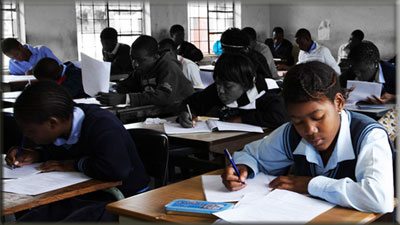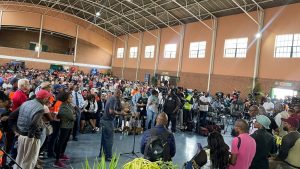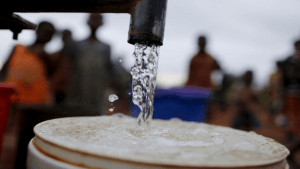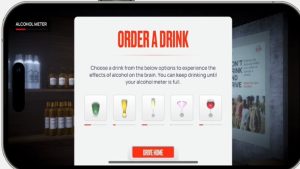South Africa’s education system remains unequal. The recent matric results clearly demonstrate that the education system is biased towards those who have financial means.
Students that wrote the Independent Examination Board (IEB) exams – mainly at private schools had an almost 100% pass rate.
However, there was a 78% pass rate for those that wrote the government’s National Senior Certificate (NSC) exams.
Over 200 000 pupils cannot register for university degrees. 600 000 pupils from the Grade one class of 2007 did not write their final NSC exams.
Political parties and education analysts are calling for both the IEB and NSC to be merged into a single system.
Despite a 78% pass rate by National Senior Certificate students, civil society organisations and opposition parties say there is little to celebrate.
Critics say the results still show an education system that is unequal and skewed towards those with financial means.
Almost all students who wrote their IEB exams passed. Most of them attended private schools.
It costs R 6500 to write an IEB exam, a fee only the privileged can afford.
IEB CEO Anne Oberholzer says:”I think there is a misconception that writing the exam costs much less. It costs R6500 if not more for a learner to write that exam. But having said that there are independent schools that write the states exam for free, they write it on the tax payer while the IEB are writing at the expense of their own.”
“The IEB has sliding scales for conceptions for higher aspiring schools that aspire to write the IEB exams but don’t have the funding BSE to do so. We are obviously pleased that the learners have done so well.”
Heather Blanckensee is headmistress at Sacred Heart College, a private school in the heart of Johannesburg.
The school delivered stellar IEB results. Blanckensee explains what it takes to have such results.
“We are actually delighted that our students did very well and 100% pass rate is something that we never take for granted and we are particularly delighted about our 98% pass rate which is attributed to how hard our students worked and support that the teachers have given them.”
Blanckensee believes educational policies need intervention if equal education is to be achieved.
“Too much emphasis was focused on maths and sciences in the high schools. And now there is recognition within the State that there is important work to be done within the early development child arena because those foundations are so critical.”
Diepsloot Combined School performance
Noel Maringa is headmaster at Diepsloot Combined School. The school is a disciplined institution in the middle of one of Johannesburg’s most dense and poorest communities.
With its 2000 students, it is one of the Gauteng government’s high performers. The principal has reason to be proud.
Maringa says they beat the odds through hard work and support from the Department of Education. The school achieved an 89% pass rate.
“Our school in particular we start at quarter to seven, its hard work we are passionate about education, and we love our children. This is an impoverished area of Johannesburg and here you see children living in shacks.”
“We want our children after four five years to leave these shacks. We want these children to become employers not employees.”
Maringa says one of the biggest challenges they face is lack of funding and crime at their schools
“We are not only operating a secondary school, we are a grade R to twelve school and you need money to maintain these strictures, you need computers, as I’m talking here burglary, crime rates, it’s disturbing.”
South Africa has been ranked 75th out of 76 on list of OECD countries in terms of its education system.
In 2018, research by the World Bank showed that South Africa has the most unequal society in the world.
Almost 30% of pupils who have attended school for six years cannot read, compared with 4% in Tanzania and 19% in Zimbabwe.
The Basic Education Department says they will change the curriculum this year to facilitate the teaching of subjects that are needed for the critical skills.
Government will start focusing on sciences and subjects that will build into engineering and technical skills.
Students urged to use CACH system
The Department of Higher Learning and Education is again advising students to use the Central Application Clearing House (CACH) system to ensure their place at a University. It opened on Friday.






